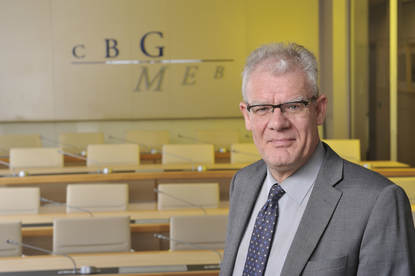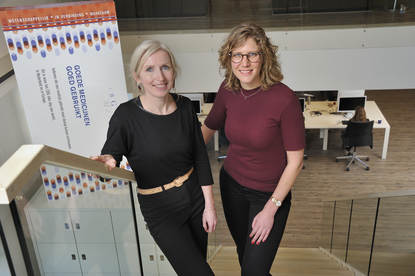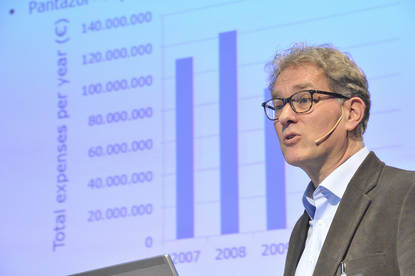Photo de Jong Gortemaker Algra
2017: The year in overviewBelow you find an overview of events in 2017.
January, February, March
Launch of the Medicine shortages and defects notification. The Notification Centre is located at the address www.medicineshortagesdefects.nl.
The MEB and hospitals affiliated with Santeon will exchange anonymous information about the prescription of medicines in top clinical hospitals in the coming year.
The Netherlands has submitted its candidacy as the country of choice for housing the EMA (European Medicines Agency). The EMA is currently located in London; however, if the Brexit becomes final, the EMA will have to be based in another EU country.
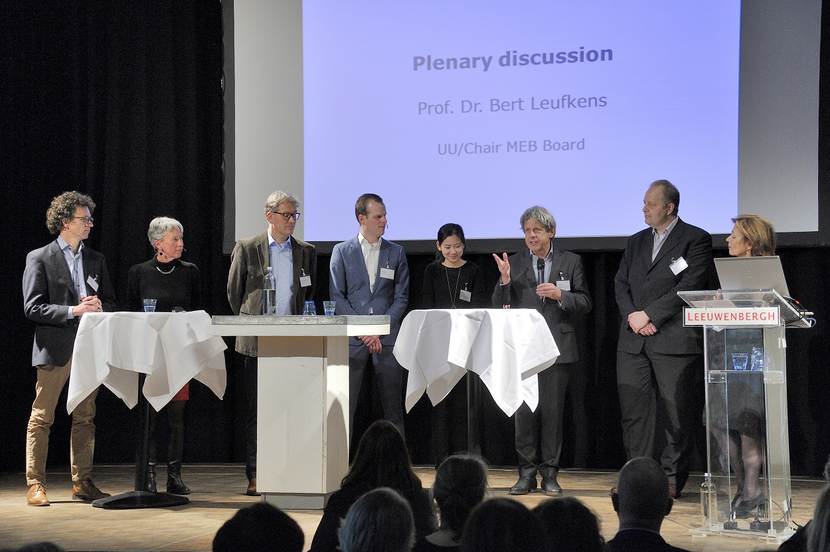
Confidence, costs, safety and good information were terms that recurred regularly during the sixth MEB Science Day on Friday 3 February 2017. Over 120 interested parties visited the informative afternoon in the Leeuwenbergh in Utrecht.
The MEB has issued this advice after studying a signal from 2016 about possible reduced effectiveness of the asthma medicines salmeterol/fluticason Vincion and Focus. No products defects were found, but people are nevertheless experiencing problems when switching. The MEB takes these complaints very seriously.
Some of the animal testing for the development of new medicines will no longer be necessary. Testing on one animal species instead of two is sufficient in many cases to rule out the adverse effects of medicines during pregnancy. This is one of the conclusions of the studies conducted by the MEB and the National Institute for Public Health and the Environment (RIVM) together with research institutes and educational institutions.
There are doubts about the reliability of studies carried out by Micro Therapeutic Research that form the basis for a large number of authorised generic medicines in Europe. In the Netherlands, this concerns 12 licences. Only one of these medicines is available on the Dutch market. There are no indications that there is anything wrong with the effectiveness and safety of the medicines themselves.
Thyrax Duotab (levothyroxine) tablets will become available again on the Dutch market. The production process of the Thyrax tablets at the new location has been approved. The MEB decided this on Thursday 30 March 2017. The new tablets satisfy the same quality and stability requirements as the old tablets. The company Aspen Pharma Trading has informed the MEB that it will be able to deliver Thyrax Duotab (0.025 mg, 0.100 mg and 0.150 mg) within a few weeks.
April, May, June
The results of this study into the consequences of switching from the medicine Thyrax Duotab to another thyroid medication were published on 20 April 2017. The most important conclusion is that particularly patients with a Thyrax dosage of more than 100 micrograms (0.100 mg) a day require a dosage adjustment more often than patients with a lower dosage of Thyrax. Based on this, patients, in consultation with their doctors, may also opt for a lower dosage of the alternative medicine when switching.
The European Committee for the Assessment of Medicinal Products for Human Use (CHMP) of the European Medicines Agency EMA advises the authorisation of the medicine Spinraza. This orphan medical product is intended for the treatment of patients with the rare, hereditary and life-threatening neuromuscular disorder spinal muscular atrophy (SMA). Spinraza is the first medicine in Europe for the treatment of SMA. It contains the active substance nusinersen.
In 2015, general practitioners prescribed six times as many strong painkillers (opioids) than 10 years ago. This is an increase from 4 to 24 per 1,000 patients registered in a general practitioner’s practice. This is apparent from a study carried out by the Netherlands Institute for Health Services Research (NIVEL), which was commissioned by the MEB. General practitioners are increasingly prescribing strong painkillers, in particular for back, neck and shoulder pains. The strongest increase is in the medicine oxycodon. In addition, an increase can be seen especially among patients age 75 and over.
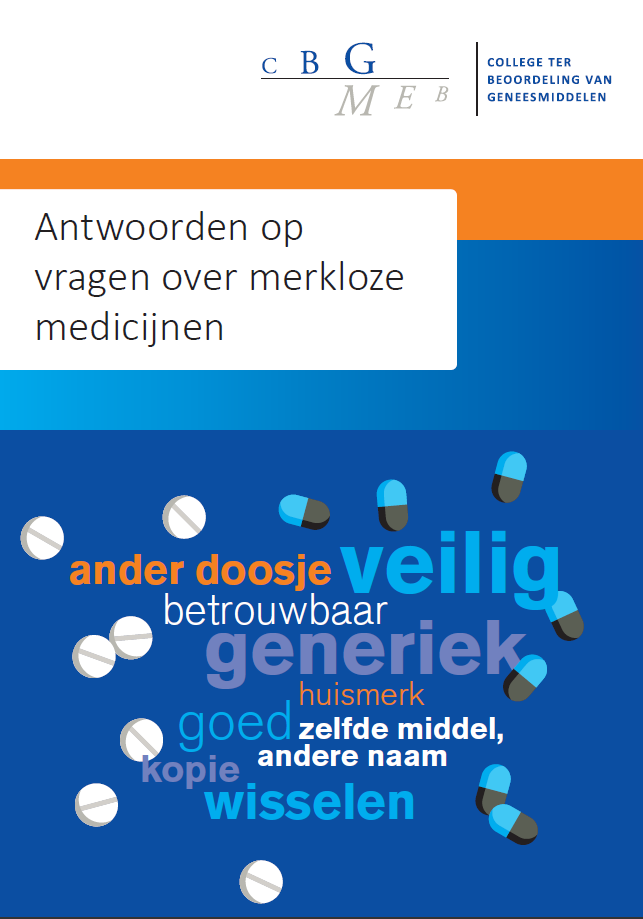
Seven out of ten prescription medicines collected by patients at Dutch pharmacies are for generic medicines. Patients and consumers have many questions about these generic medicines. As of today, the answers to these questions can be found in a brochure with easily comprehensible text and many pictures. The MEB developed this brochure together with 10 patient organisations, including the Dutch Consumer Association and the Dutch Patients’ Federation.

Prof. H. (Eric) Boersma was sworn in as a new member of the Medicines Evaluation Board (MEB) on 1 June 2017.
Will this benefit patients? The MEB must remain sharp and constantly ask this question. This was the message that the departing chair of the MEB, Bert Leufkens, imparted to his audience yesterday at the MEB Day 2017. Over 500 visitors attended the MEB Day in the convention centre Jaarbeurs in Utrecht.

The chair of the MEB, Bert Leufkens, bid everyone farewell as chair during the MEB Day. Bert Leufkens: “I have had the privilege of working with a great MEB team. But the time has come for me to again focus my energy on the field of science at the university."

The MEB has again assessed the availability of loperamide. This medication is used to treat diarrhoea and can be purchased at a pharmacy or supermarket without a prescription. The discussion arose mainly due to worldwide reports of misuse (high dosages) and wrong use of the medicine, with serious heart complaints as a consequence. Based on the reports, there does not appear to be any misuse of loperamide so far in the Netherlands. Therefore, the MEB had decided not to change the over-the-counter status of loperamide. However, the MEB does emphasise that patients should continue to follow the instructions in the patient information leaflet carefully.
July, August, September
The pharmaceutical company that markets ozenoxacin (Ozanex) via a European authorisation procedure must carry out a follow-up study into the risk of developing antibiotic resistance. Ozenaxcine is an antibiotic cream for the treatment of impetigo. This is a broad spectrum quinolone antibiotic known for the rapid development of resistance. The follow-up study is in line with the more general responsibility that MEB has with regard to the use of antibiotics on skin.
Today, Minister Edith Schippers (Ministry of Health, Welfare and Sport) presented the Dutch bid for the relocation of the EMA in Brussels. Wouter Bos, former deputy prime minister of the Netherlands and Chair of the Board of Directors of VU University Medical Centre in Amsterdam, was appointed ambassador for the Dutch candidacy for the EMA.
A European study shows that doctors prescribe the acne medication Diane-35 (cyproterone acetate / ethinyl estradiol) to the correct patient group and that they are well aware of the risk of thrombosis and the symptoms of this. Measures taken in 2013, including extra warnings for the higher risk of thrombosis when using Diane-35 and the thrombosis checklist for doctors and users, have had an effect. Based on these outcomes, the European Medicines Agency (EMA) concludes that additional measures to reduce the risk of thrombosis are not necessary.

Prof. Ton de Boer became the new chair of the MEB as of today, 1 August 2017. De Boer thus takes over the tasks and responsibilities of Prof. Bert Leufkens.
The advice for pregnant women in the paracetamol patient information leaflet does not have to be changed. MEB determined this in the meeting of 27 July 2017. Various studies have been conducted in recent years into the use of paracetamol during pregnancy and possible effects later in the child. Summarising all the scientific data, there is no convincing evidence for a connection between the use of paracetamol during pregnancy and the development of disorders in the child, such as autism or ADHD.
The MEB has received reports from the Netherlands Pharmacovigilance Centre Lareb about the anticoagulation medication acenocoumarol. Lower coagulation values were measured among 10 patients after switching from acenocoumarol manufactured by Sandoz to the medication of the manufacturer Centrafarm. In that case, blood clots a bit faster than usual. At present, a possible explanation for these reports is being sought. To this end, tests are being performed with both medicines. There are no indications that there is anything wrong with the quality of acenocoumarol at present.
Kim Notenboom, assessor at the MEB, carried out a study into the problems that elderly people experience in their medicine use. She is presenting her PhD thesis on this subject at Utrecht University on 27 September 2017. For her thesis, Notenboom also visited 59 elderly people who lived on their own. She concluded that many people have practical problems when using their medicines, such as opening the packaging, swallowing large pills and cutting pills in half.
To what extent are patients and doctors aware that they can report adverse reactions to medicines? The European Medicines Agency (EMA) prepared and since completed a survey in order to obtain insight into this. The results of this survey will be published in 2018.
October, November, December
The packaging of prescription-only medicines must have safety features from 9 February 2019 onwards. The pharmacy can use these features to check that the medicines are genuine and thereby protect consumers better against possible falsification.
The United Kingdom has decided to leave the European Union as of 29 March 2019. This has consequences for the regulation of medicines in Europe. The MEB is preparing for the partial takeover of extra work which arises due to Brexit. In this context, continuity is paramount. Therefore, the Dutch government is investing €2 million in extra capacity for the MEB in the coming years. Investments are also being made in reinforcing the European network by facilitating extra training opportunities.

At a mini symposium, colleagues said goodbye to Dr Christine Gispen-de Wied, Head of the MEB Programme Office Science. Although Christine is retiring, she will continue to be involved with the MEB for one day a week in order to complete a number of research projects.
7 November MEB calls on consumers: ensure that you are well informed when buying medicines at stores
Painkillers that can be purchased without the advice of a doctor or without a prescription, such as paracetamol and ibuprofen, are intended for short-term use. These medicines are only safe when they are used properly. However, adverse effects can always occur; therefore, also with painkillers. In order to stimulate the proper use of painkillers, MEB calls on everyone to ensure that they are well informed when buying medicines at stores.
The MEB welcomes the European Medicines Agency (EMA) to Amsterdam. In its declaration of candidacy, the Netherlands stated that the MEB would support all aspects of the EMA if headquartered in Amsterdam. This means that the MEB, in close cooperation with the EMA, will be working on the availability of good and safe medicines for humans and animals both in the Netherlands and in Europe.
This week, the MEB and the Netherlands Pharmacovigilance Centre Lareb are calling for more attention for reporting possible adverse effects of medicines. The campaign consists of short animation videos, infographics and radio commercials. Via Facebook and Twitter, attention is being asked for reporting possible adverse effects of medicines with the hashtag #mijnbijwerking.
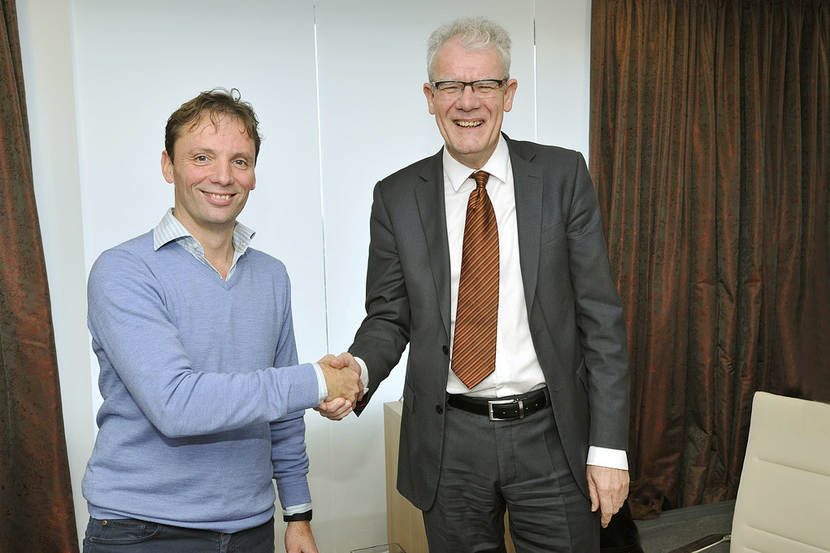
Prof. O.M. (Olaf) Dekkers was sworn in as a new member of the Medicines Evaluation Board.
The MEB believes that the discussion about expensive medicines should not just focus on costs. Quality and safety for patients are aspects which have not received sufficient attention and which are essential for people's confidence in medicines. The MEB fully understands the public indignation at expensive medicines now and in the future. It also understands that the cheaper pharmacist's preparations may seem to be a solution to this problem.
Together with other European countries, the MEB approved the use of Medikinet (methylphenidate) for adults. Until now, this medicine had only been approved for children up to age 18; however, in practice, it was also prescribed for adults.

